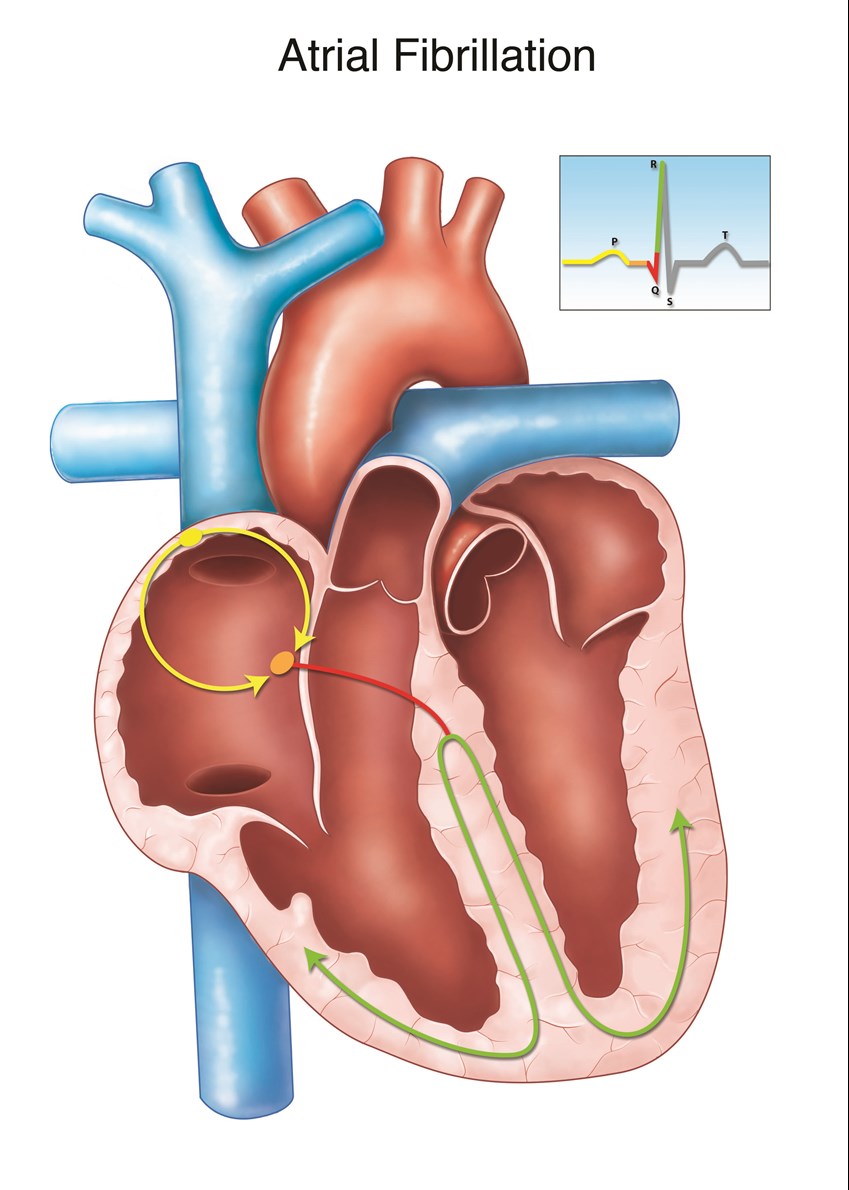Atrial Fibrillation
Atrial fibrillation (AF) is a disease of irregular heart rhythm. It is very common, with 1.3 million people in the UK suffering from the condition.
Because the heart is not beating regularly, it reduces the efficiency of the beats and also increases the chances of having clots accumulating in the heart - which if disrupted can cause strokes. A number of different factors influence what the risks of leaving atrial fibrillation unchecked are, but the condition is not as benign as was previously believed if left untreated long term.
The heart has a natural pacemaker system that ensures that it beats synchronously: first the atria and then the ventricles. The left and right sides should beat at virtually the same time.
Several bundles of electrical conduction tissue through the heart ensure that this occurs, and disruption to these can affect whether the heart loses its natural rhythm. One cause of this is swollen atria as occurs with Heart Valve Disease.
Coronary artery disease can also cause AF, but the condition sometimes also occurs without a precipitating cause.
If the atria stop beating in sync with the ventricles (such as in conditions like atrial fibrillation or atrial flutter), it can cause feelings of skipped beats (“palpitations”), dizziness, breathlessness or nausea. The efficiency of the heart can drop by up to 30% if the heart does not beat in sync. In addition, an irregular rhythm from the top of the heart can both be caused by and also cause valve problems.
Another important risk of the atria not empyting out properly is the stagnation of blood in the chambers. This can allow the blood to clot and, if the clots are dislodged, can cause strokes.
For this reason, irregular heart beats are often treated aggressively with medications to correct the rhythm, surgery to address the underlying cause, and blood thinners to prevent the risk of strokes.
